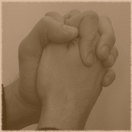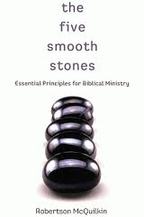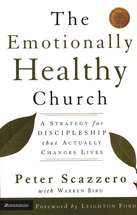 My Sociology professor defined "prayer" as a religious spell, or ritual to affect the outcome of a situation. Taken aback, I realized that he was right...at least, that's what prayer is for a lot of self-proclaimed Christians. A wish list of desires demanded of a supernatural force, thus turning God into a personal genie. Just rub his lamp.
0 Comments
"What's my purpose?" has to be one of the most intense introspective questions one can ask. Especially since it's so integrated with the meaning of life. The question begs transcendence since it's difficult to grant meaning or purpose to your own life. For some the answer is unquestionably delivered, such as Isaiah in God's throne room, but for others the quest for one's calling in life is often plagued with doubts. However, just because you haven't had an all defining moment, doesn't mean God hasn't placed a call in your life. God seems to speak in several different ways:
As God makes us more like his son he first develops us internally (Spiritual Disciplines), then develops us in the context of community (Reciprocal Commands), and then develops us as we enter into the lives of others (Community Framework).
In creating disciples, the New Testament authors were intent on bringing about "heart change." Both the "means" and the "end" desire is a heart filled with Faith, Hope, and Love.
 “Where there are no oxen, the manger is clean, but abundant crops come by the strength of the ox.” Proverbs 14:4 (ESV) I'm not sure when or where church became a place for people who had it all together. A biblically healthy church always seems to be elbow deep in the hurt and pains of both its visitors and its members. Thanks to the sins of this world, people have pasts, baggage, and problems that a friendly handshake won't solve. Ignoring the pains will slow everything down, or worse completely derail the ministry. Like in a life saving surgery, you can expect new found strength and vitality through spiritual healing, but it hurts to go under the knife...and the surgeon gets bloody. (Roy King - Intro to Leadership)  Robertson McQuilkin provides a biblical approach to the difficult intersection of theology and ministry within the Church. He identifies the five smooth stones each Christian church must have in order "to prepare for battle against the spiritual Goliaths of the day." It's fascinating to hear how churches live or die by whether they actively teach and practice these five essential dogmas:
 I am glad that I did not read Peter Scazzero's book The Emotionally Healthy Church five years ago. Having virtually ignored my emotions since childhood, it probably would have only made me mad. However, after receiving guidance under a mentor and a deep-relationally men's' group (VCC Augusta), I have can now read Scazzero's book in firm agreement. Emotional health is crucial, if not necessary, to sound discipleship. Scazerro points out that personal strengths and gifts are insufficient by themselves. What lies beneath the surface of a person often has more impact on decision making and outcomes. I'm a driven self-starter and innovator who loves being a change agent for a wide scope of projects. I rely mostly on intuition and sheer will to accomplish tasks, figuring the facts speak for themselves. Only within the past few years (2007) have I worked to include emotions in my assessments. As a result, I've been nicknamed “Spock” (Star Trek) on more than one occasion. In a way, I was bred for the business world, but called to the ministry.
|
AuthorBrett Yardley: Categories
All
Archives
January 2019
|

